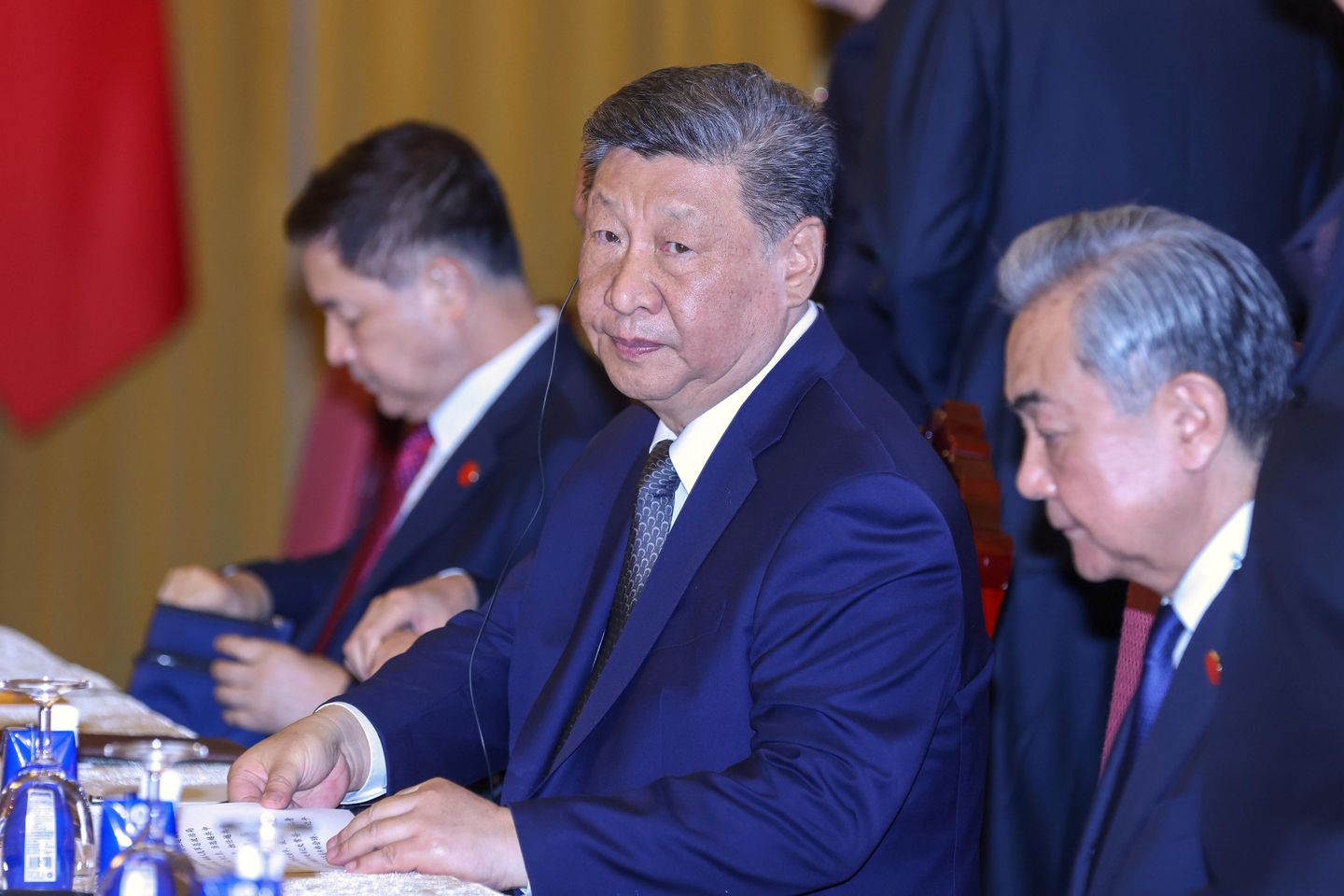
Chinese President Xi Jinping is using his Southeast Asia tour to position China as a stabilizing force for free trade, contrasting with recent market disruptions caused by the U.S. tariffs.
The diplomatic mission includes stops in Vietnam, Malaysia, and Cambodia, with Xi emphasizing China’s role in providing “stability and certainty” in what he called a “turbulent world.”
In Hanoi, Xi met with Vietnamese Communist Party General Secretary To Lam and paid respects at Ho Chi Minh’s mausoleum. The visit resulted in memorandums on supply chain cooperation and a joint railway project, along with promises to increase Chinese market access for Vietnamese agricultural goods, though specific details remained limited.
The timing of Xi’s tour has taken on greater significance following President Trump’s recent tariff announcements that destabilized global markets. Trump criticized the Vietnam meeting, claiming the two nations were conspiring against American interests.
In Malaysia, where Xi arrived Tuesday for a three-day visit, discussions are expected to focus on a free trade agreement between China and the 10-member Association of Southeast Asian Nations (ASEAN), which Malaysia currently chairs. ASEAN Secretary-General Kao Kim Hourn told Chinese state media that the agreement would eliminate many tariffs between China and the bloc members.
Malaysia hosts several projects under China’s Belt and Road Initiative, including an $11.2 billion railway development. China remains Malaysia’s largest trading partner and a significant source of foreign direct investment. Malaysian Prime Minister Anwar Ibrahim has described China as a “true friend” and has visited the country three times since taking office in late 2022.
Analysts suggest Xi’s tour serves to maintain China’s regional influence, with Southeast Asia representing a major trading partner. Oh Ei Sun, a senior fellow at Singapore’s Institute of International Affairs, noted that the trip allows Beijing to present itself as a “responsible” superpower, particularly as Vietnam, Malaysia and Cambodia all face impacts from Trump’s tariffs.
Despite the economic cooperation, territorial disputes in the South China Sea remain a source of tension between China and both Vietnam and Malaysia. Anwar has previously stated that Malaysia will not yield to Chinese demands regarding oil and gas exploration in contested waters.
Read more: Xi makes a case for free trade, presenting China as a source of ’stability and certainty’
This article is written with the assistance of generative artificial intelligence based solely on Washington Times original reporting and wire services. For more information, please read our AI policy or contact Ann Wog, Managing Editor for Digital, at awog@washingtontimes.com
The Washington Times AI Ethics Newsroom Committee can be reached at aispotlight@washingtontimes.com.












